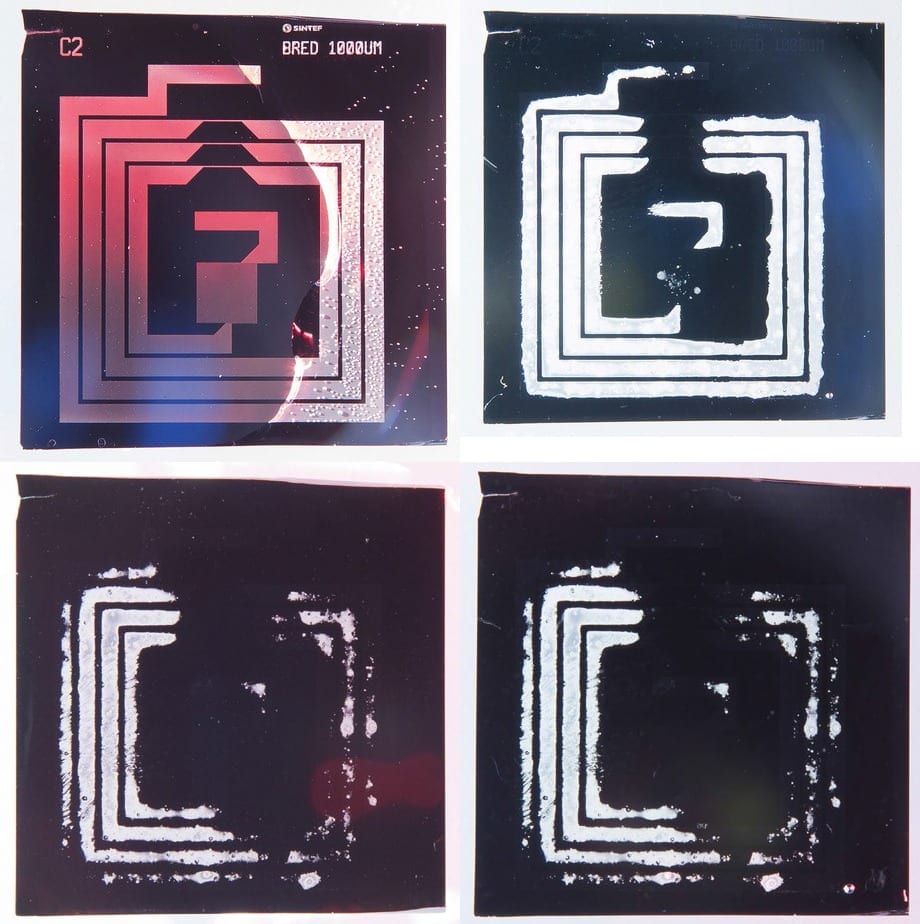
Norwegian researchers are developing electronics that disappear to order.
When the FM frequencies are removed in Norway in 2017, all old-fashioned radios will become obsolete, leaving the biggest collection of redundant electronics ever seen – a mountain of waste weighing something between 25,000 and 30,000 tonnes.
The same thing is happening with today’s mobile telephones, PCs and tablets, all of which are constantly being updated and replaced faster than the blink of an eye. The old devices end up on waste tips, and even though we in the west recover some materials for recycling, this is only a small proportion of the whole.
And nor does the future bode well with waste in mind. Technologists’ vision of the future is the “Internet of Things”. Electronics are currently printed onto plastics. All products are fitted with sensors designed to measure something, and to make it possible to talk to other devices around them. Davor Sutija is General Manager at the electronics firm Thin Film, and he predicts that in the course of a few years each of us will progress from having a single sensor to having between a hundred and a thousand. This in turn will mean that billions of devices with electronic bar codes will be released onto the market.
No time to lose
Researchers are now getting to grips with this problem. Their aim is to develop processes in which electronics are manufactured in such a way that their entire life cycle is controlled, including their ultimate disappearance.
In New Orleans in the USA, researchers have made electronic circuits which they implant into surgical wounds following operations on rats. Each wound is sewn up and the electricity in the circuits then accelerates the healing process. After a few weeks, the electronics are dissolved by the body fluids, making it unnecessary to re-open the wound to remove them manually.
In Norway, researchers at SINTEF have now succeeded in making components containing magnesium circuits designed to transfer energy. These are soluble in water and disappear after a few hours.
A demanding process
“We make no secret of the fact that we are putting our faith in the research results coming out of the USA”, says Karsten Husby at SINTEF ICT. “The Americans have made amazing contributions both in relation to medical applications, and towards resolving the issue of waste. We want to try to find alternative approaches to the same problem”, he says.
The Latest on: Degradable electronics
[google_news title=”” keyword=”Degradable electronics” num_posts=”10″ blurb_length=”0″ show_thumb=”left”]
via Google News
The Latest on: Degradable electronics
- Functional Films Market Set to Reach US$ 54,294.8 million by 2033, Fueled by Innovation and Increased Product Functionalityon May 13, 2024 at 7:10 am
The functional films market is anticipated to expand its roots at a steady CAGR of 7.2% between 2023 and 2033. The market is anticipated to cross a market share of US$ 54,294.8 million by 2033, while ...
- Bacteria-seeded plastic is tough and degradableon May 6, 2024 at 4:59 pm
Most TPU plastics used today end up in landfills. Some researchers are starting with biobased materials to make degradable or recyclable TPUs, but the materials’ mechanical properties are ...
- Electronics storeson December 30, 2023 at 3:23 pm
Electronics store Ratings Find the top deals on gadgets and devices at the best electronics stores. From computers to cameras and even home appliances, electronics stores carry many must-haves.
- Best Deals on Electronicson June 25, 2023 at 1:45 pm
Of course, the best sales on electronics involve more than a reduced price. You want the product you buy to work well, no matter how much you spend. So I look for price cuts on items that stand up ...
- Computers & Electronics Coupon Codes for April 2024on May 18, 2023 at 8:45 am
For a limited time only, you can take 25% off your purchase of regular-priced RMx, SF-L, CX, and RM1200x Shift PSUs. All you need is this Corsair coupon at checkout.
- Aims & Scopeon March 17, 2023 at 4:46 am
Advanced and emerging materials for flexible electronics, including plastic, molecular and inorganic systems, two-dimensional materials, biomaterials, nanofibers, degradable materials Flexible ...
- Electronics Dealson April 8, 2022 at 1:45 pm
Down to a new low price. What we like: Our fancier pick for an electronics repair toolkit in our guide to the best gifts for gamers. Perfect for tinkerers who want to build or fix their own gear.
- Degradable Solutions AGon March 18, 2022 at 4:12 pm
Degradable Solutions specialized in resorbable medical implants. In November 2011 Degradable Solutions was acquired by the healthcare company Sunstar for an undisclosed amount. Sunstar, specializing ...
- Japan scientists invent electronic device that is biodegradableon February 23, 2020 at 11:00 pm
The nanopaper sensor device, which the researchers developed to collect data without damaging nature, is a potentially large leap toward production of environmentally friendly electronics.
- Electronics That Can Handle The Pressureon June 10, 2017 at 12:13 pm
Deep-sea exploration is considered as a relatively new area of research and the electronics involved has to be special in order to survive some of the deepest parts of the ocean. Pressure Tolerant ...
via Bing News











